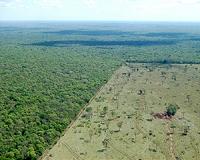 |
Taiji, Japan (AFP) Nov 5, 2010 The Japanese dolphin-hunting town made infamous by the Oscar-winning documentary "The Cove" should capitalise on its natural beauty and turn to ecotourism instead, says activist Ric O'Barry. "The mountains run right to the sea. It's one of the most beautiful coastlines in the world," said O'Barry during a visit this week to Taiji, pointing to a green ridgeline as kites circled over the deep-blue ocean. O'Barry, the central character in the hard-hitting film, said the southwestern town should stop culling the sea mammals and instead turn to tourist ventures such as whale watching, sea kayaking and scuba diving. "That's my proposal, because it's so beautiful," said the veteran activist, who has a small dolphin tattooed on his wrinkled hand, as a cool autumn breeze blew in across the ocean and the sun set over the Pacific. Every year the fishermen of Taiji corral some 2,000 dolphins into a secluded bay, select a few dozen for sale to aquariums and marine parks, and stab the rest to death for meat in a slaughter that turns the water red. O'Barry was speaking Monday, a day before storming out of an unprecedented public meeting in Taiji between animal rights activists and the town's mayor and local fishermen, which he dismissed as a biased "dog and pony show". Still, O'Barry said he hoped the documentary and his ongoing efforts will help change Japanese minds about hunting dolphins, a practice the fishermen defend as an ancient tradition but which O'Barry labels "genocide". O'Barry was the main dolphin trainer for the 1960s US television show "Flipper" but has since campaigned worldwide against killing the intelligent creatures or keeping them captive in marine parks and aquariums. "They are not fish," he said. "They are not cows, chickens, pigs." O'Barry says the film -- much of which was shot clandestinely over several years, using expert divers and employing hidden cameras on forested hillsides and underwater -- was "a tool" to help change people's minds. "If the Japanese people see the movie, they can stop buying dolphin meat," he told AFP. "If they see the movie, they will think twice before they buy a ticket for a dolphin show. That's what I promote." O'Barry, an activist with the non-profit group the Earth Island Institute, says his struggle is not just an animal rights issue but part of a far wider effort to save the planet. "Dolphins are a reference point in our relationship with nature... The cove is a microcosm of our relation with oceans. That's the bigger message." He hopes the film will ring alarm bells similar to the impact of "Silent Spring", the 1962 book by Rachel Carson on US industrial pollution that is widely regarded as having kicked off the modern environmental movement. O'Barry said dangerous chemicals are a key reason to stop eating dolphins, whose meat has such high levels of the heavy metal mercury that warning labels on shipments say it should be handled like "toxic waste". "If they stop, they will stop for a reason. The reason is mercury contamination," he said. "If you have compassion for dolphins, you should have compassion for people, and here I am. Look at the bigger issue." While vowing to keep fighting, O'Barry said he may not live to see victory. "I think they will stop, but I'm not sure they will stop in my life. I'm 71 now," he said. "It's the Japanese people who have to do this, not outside Westerners. They have to take ownership of this issue. I have to be replaced by young Japanese people or housewives."
Share This Article With Planet Earth
Related Links Darwin Today At TerraDaily.com
 Continuing Biodiversity Loss Predicted But Could Be Slowed
Continuing Biodiversity Loss Predicted But Could Be SlowedParis, France (SPX) Nov 04, 2010 A new analysis of several major global studies of future species shifts and losses foresees inevitable continuing decline of biodiversity during the 21st century but offers new hope that it could be slowed if emerging policy choices are pursued. Led by experts Henrique Miguel Pereira and Paul Leadley, the 23-member scientific team from nine countries, under the auspices of DIVERSITAS, UNEP ... read more |
|
| The content herein, unless otherwise known to be public domain, are Copyright 1995-2010 - SpaceDaily. AFP and UPI Wire Stories are copyright Agence France-Presse and United Press International. ESA Portal Reports are copyright European Space Agency. All NASA sourced material is public domain. Additional copyrights may apply in whole or part to other bona fide parties. Advertising does not imply endorsement,agreement or approval of any opinions, statements or information provided by SpaceDaily on any Web page published or hosted by SpaceDaily. Privacy Statement |